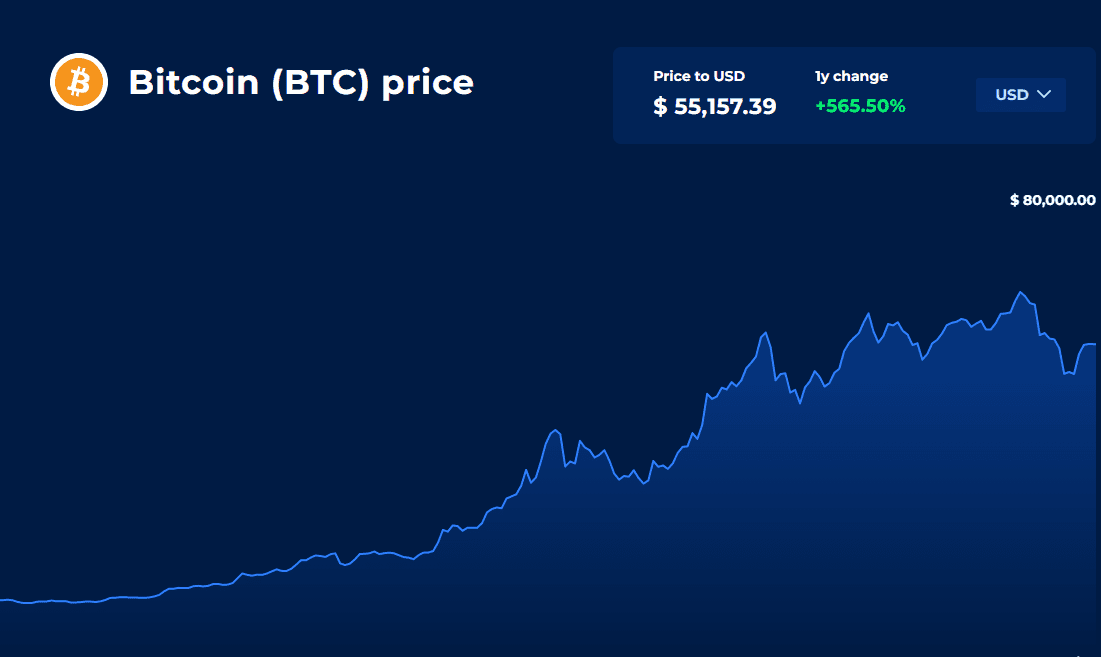Factors Behind Today’s Bitcoin Price Surge
From time to time, there are surges in open interest within a relatively short period, and this phenomenon consistently signals a turning point for Bitcoin prices, as one observer pointed out.
The open interest in the standard Bitcoin futures contract offered by the Chicago Mercantile Exchange (CME) has surged by 35% in just four weeks. Historically, these spikes in open interest have been indicative of trend changes in the spot market.
The futures contracts for Bitcoin (BTC) provided by the global derivatives giant CME are well-known for their role in determining price discovery in the cryptocurrency’s spot market. A recent study conducted by McClellan Financial Publication suggests that sudden increases in open interest, which represents the number of active contracts, in these cash-settled futures contracts may hint at forthcoming shifts in Bitcoin’s price.
According to the Commitment of Traders report by the Commodity Futures Trading Commission (CFTC), the open interest in CME’s standard BTC futures, often referred to as large futures, has surged by 35% to reach 19,603 contracts (equivalent to $3.4 billion) in just four weeks. These standard contracts are based on 5 BTC, equivalent to approximately $173,000, and are considered an important indicator of institutional activity.
A rapid increase in open interest in such a short period suggests that Bitcoin’s ongoing upward trend may soon lose momentum, potentially leading to a price correction. Over the past four weeks, the cryptocurrency has appreciated by over 25%, trading at around $35,000.
Tom McClellan, the editor at The McClellan Market Report, noted, “What’s fascinating about the total open interest in Bitcoin is that, from time to time, it experiences sudden spikes in a relatively short timeframe. When this occurs, it almost always signals a turning point for Bitcoin prices, whether it’s a peak or a trough.” He shared this insight in an email to subscribers.
Historical data shows that spikes in open interest have been associated with trend changes, including the peak of the bull market in late 2021 and the bottom of the bear market in November 2022.
Comparing to Gold
The recent rise in Bitcoin’s price and the surge in open interest are likely driven by expectations that the U.S. Securities and Exchange Commission (SEC) will soon approve one or more spot-based Bitcoin exchange-traded funds (ETFs). Many analysts anticipate that a U.S.-based spot ETF could attract billions of dollars in new investor funds, which would drive Bitcoin’s market value higher.
However, it’s important to note that the expected influx of funds may not materialize immediately, leaving the possibility for a post-launch price decline, similar to what happened following the introduction of ProShares’ Bitcoin futures ETF (BITO) in October 2021. A comparable scenario unfolded in the gold market in the 1970s.
“Speculators are rushing in ahead of the anticipated surge in demand, just as they did before BITO’s approval, only to see it peak. The same dynamic occurred with gold when it was finally made available for public ownership in 1975,” explained McClellan.
Bitcoin has been trading in a relatively narrow range of 4.5% over the past two weeks, indicating a period of consolidation around the $34,700 mark.
Why is Bitcoin price up today?
Introduction
Bitcoin, the pioneer of cryptocurrencies, has been on a rollercoaster ride since its inception. Today, it is making headlines once again as its price surges. But what are the factors driving this increase in Bitcoin’s value? In this analysis, we will delve into the various elements contributing to the current uptrend in Bitcoin’s price.
-
Institutional Adoption
One of the primary drivers of Bitcoin’s price surge is the increasing acceptance of cryptocurrency by institutional investors. Major financial institutions and corporations have been showing a growing interest in Bitcoin as an asset class. Tesla’s investment of $1.5 billion in Bitcoin in early 2021 and the subsequent announcement that they would accept Bitcoin as payment for their vehicles played a significant role in legitimizing cryptocurrency in the eyes of many investors. Furthermore, traditional financial giants like Fidelity and JPMorgan Chase have taken steps to provide cryptocurrency services to their clients, boosting confidence in the asset class.
-
Macro Economic Conditions
Global economic conditions have had a profound impact on Bitcoin’s price. Inflation concerns and central bank monetary policies have driven many to seek alternatives to traditional fiat currencies. Bitcoin’s scarcity, with a limited supply of 21 million coins, has made it an attractive store of value in times of economic uncertainty. The ongoing debate about inflation and the response from central banks, particularly the U.S. Federal Reserve, have contributed to Bitcoin’s appeal.
-
Regulatory Developments
Regulatory changes and government policies have played a significant role in shaping the cryptocurrency market. While some countries have embraced cryptocurrencies, others have imposed stricter regulations. Positive regulatory developments, like the approval of a Bitcoin exchange-traded fund (ETF) in the United States, can have a significant impact on Bitcoin’s price. The prospect of clear, well-defined regulations in key markets can reduce uncertainty for investors and attract institutional money into the cryptocurrency space.
-
Growing Adoption and Integration
Bitcoin has seen increasing adoption in various sectors. More merchants and businesses are accepting Bitcoin as a form of payment, making it more practical for everyday use. Additionally, the integration of Bitcoin into payment platforms and mobile apps has made it easier for people to buy, hold, and use Bitcoin. This growing utility adds to Bitcoin’s appeal and may drive up its price as its network effect expands.
-
Halving Events
Bitcoin’s unique supply mechanism includes periodic “halving” events, which occur approximately every four years. During these events, the number of new Bitcoins mined is halved. This reduces the rate at which new Bitcoins enter circulation, increasing scarcity. Previous halving events have coincided with significant price increases, as reduced supply and increased demand tend to push the price higher. The most recent halving occurred in May 2020, and its effects may still be contributing to the current surge.
-
Speculative Trading and Sentiment
The cryptocurrency market is known for its speculative nature, and sentiment plays a crucial role in price movements. When traders and investors perceive positive news or anticipate future gains, they may rush to buy Bitcoin, driving up the price. Conversely, negative news or uncertainty can lead to selling pressure. Social media, news coverage, and online forums can magnify these sentiment shifts.
-
Technological Advancements
Bitcoin’s underlying technology has continued to evolve. Developments in the Bitcoin network, such as the adoption of the Lightning Network for faster and cheaper transactions, have improved its utility. Technological enhancements can make Bitcoin more attractive as an investment and a means of exchange.
-
Market Maturity
As the cryptocurrency market matures, it becomes more stable and less prone to extreme price fluctuations. Increased liquidity and trading volume can reduce the impact of large trades on the market, making it a more attractive asset class for institutions. The growing presence of well-regulated cryptocurrency exchanges and financial instruments contributes to the market’s maturity.
Conclusion
The factors contributing to today’s Bitcoin price surge are multifaceted. Institutional adoption, macroeconomic conditions, regulatory developments, growing adoption and integration, halving events, speculative trading, technological advancements, and market maturity all play a role in the cryptocurrency’s current ascent. The interplay of these elements creates a complex and dynamic environment, making Bitcoin an asset that captures the attention of investors worldwide. As the cryptocurrency market continues to evolve, staying informed about these factors is crucial for those seeking to understand and predict Bitcoin’s price movements.










